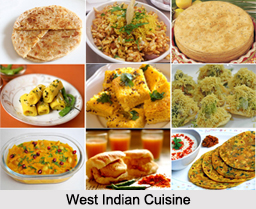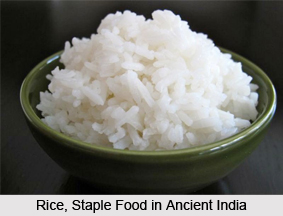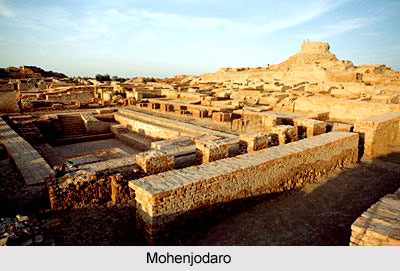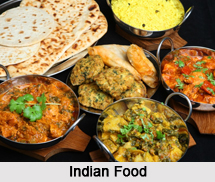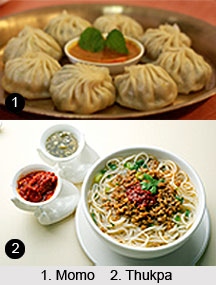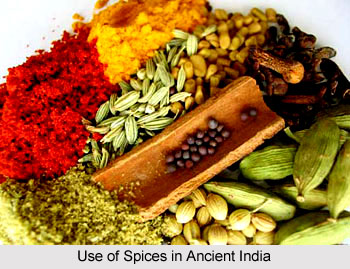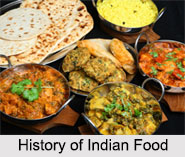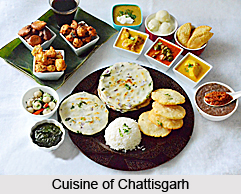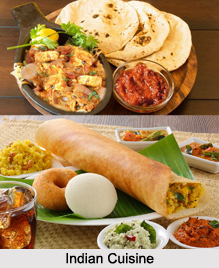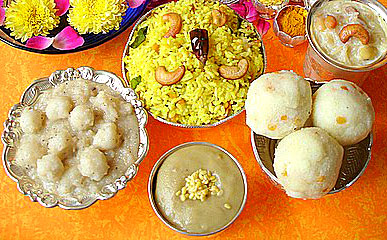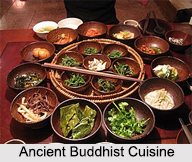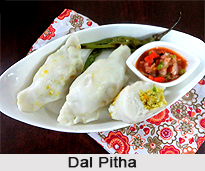One basic principle of Indian Culture is that it can be seen that the manifestation of God not only exists in the external universe but also within man. In the first stage of brahmacharya the student was dependent for his food on the householder. The householder by providing food to the students, the guests and the hermits not only discharges his duty as a householder but is also trying to realize the divinity in him. Of the four basic aims of human existence namely dharma, artha, kama and moksa he neglects none. He earns wealth and enjoys the worldly pleasures. But both these activities of his are circumscribed by dharma i.e. discharge of his duties as an individual and as a member of the society. Only when he enjoys the pleasures of life in this way can he hope to get salvation. Thus food also became a means of realizing the divinity in man. It was not simply to satisfy his desire for eating delicacies that he cooked food. It is for developing all his faculties to enable him to discharge his duty towards all human beings and living creatures that he cooks food. It is food that is the vital force so it was raised to the status of a divinity. It is clearly stated in the Katha Upanishad that one who does not feed a learned guest cannot expect either pleasures such as sons and cattle in this world or salvation after death. In the Chandogya Upanishad it is clearly stated when there is purity of food then the mind becomes pure, when the mind is pure them follows firm remembrance of God when the last is secured all knots that bind the soul to this world are loosened.
All food articles were neither considered suitable for all stages of an individual`s life, nor for all classes of society nor for all seasons and for all regions of the country. It was for this reason that the early lawgivers prescribed food articles suitable for different stages in life and for different varnas according to their temperament and professions. Food habits of Indians were also modified by the contact of different cultures. They reflect the synthetic nature of Indian culture. The authors of medical treatises prescribed different food preparations for residents of different regions of the country and for different seasons. The regional variations in food reflect the variety of its culture.
The lawgivers prohibited the use of certain food articles, which were considered hygienically unsuitable for human consumption. One other major consideration is imposing restrictions on some food articles was to safeguard the high ethical standards of the society. For this reason food was not accepted from undesirable persons. Some restrictions on food were prescribed to maintain the ritual purity of the brahmanas and to segregate the persons who were culturally at a low level from those who were culturally advanced. Some prohibitions were based on superstitions and some aimed at avoiding all food articles that were considered exotic. Meat eating and drinking of liquors were generally avoided by those who aimed at realizing the divinity within them.
The most important cause which prompted these men to give up meat eating and drinking liquors seems to have been `the metaphysical conception that one Supreme Entity pervades the whole universe, that all life was one and the meanest insect was a manifestation of the divine Essence and that philosophical truths would not dawn upon the man who was not restrained, free from crude appetites and had not universal kindliness and sympathy.`
Moderation in food was prescribed for the proper development of an individual`s faculties.
These early brahmanical lawgivers also laid down some rules with a view to maintaining the purity of food articles and kitchen accessories. The etiquette or rule prescribed reflects the cultural level of a society. So rules were laid down that all persons might follow them to be able to realize their basic aims in life.
The above survey shows that food occupied a very important place in the life of ancient Indians. It was rather regarded as a means of realizing the divinity in man for there was a firm belief that it was purity of food which alone could enable a man to discharge efficiently his duties as an individual and as a member of the society. By doing so, it was believed, one could realize the four basic aims of an individual`s life. Just as in Ancient India, art was worshipped in order to deepen the consciousness of the soul and awaken it to a new sense of spiritual joy and nobility. The purity of food was also insisted upon in order to awaken the divinity within him.
